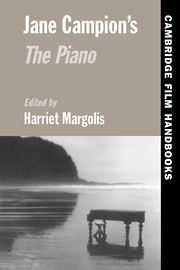Book contents
5 - Foreign Tunes?
Gender and Nationality in Four Countries' Reception ofThe Piano
Published online by Cambridge University Press: 16 January 2010
Summary
For a while I could not think, let alone write about The Piano without shaking. Precipitating a flood of feelings, The Piano demands as much a physical and emotional response as an intellectual one. … I wanted to rush at the screen and shout and scream.
(Lizzie Francke, [Review])IN CIRCULATION: THE PIANO PHENOMENON
At the 1993 Australian Film Festival The Piano won a record eleven awards out of a possible fourteen. On 29 April 1994, a little under a year after its release, gross box office takings worldwide, according to its producer, Jan Chapman, were US$116,695,947. This included the following figures in the four territories under consideration here: US$7,090,327 in Australia, US$16,305,085 in France, US$39,312,718 in the United States, and US$6,450,306 in Britain. By the beginning of September 1994 – with the film still running in many European countries, including Greece, Spain, and Italy, provincially as well as in capital cities – it was estimated that the global figure had increased to US$140 million. Comparisons with other recent major Australian box office successes indicate not just the size but also the unusual textual basis of The Piano's commercial success. Its earnings of US$39 million in the United States are not much smaller than those of Australia's most successful film there, Crocodile Dundee (Peter Faiman, 1986), which earned US$174m and stands as the most successful foreign film ever to play in the United States.
- Type
- Chapter
- Information
- Jane Campion's The Piano , pp. 135 - 162Publisher: Cambridge University PressPrint publication year: 1999



